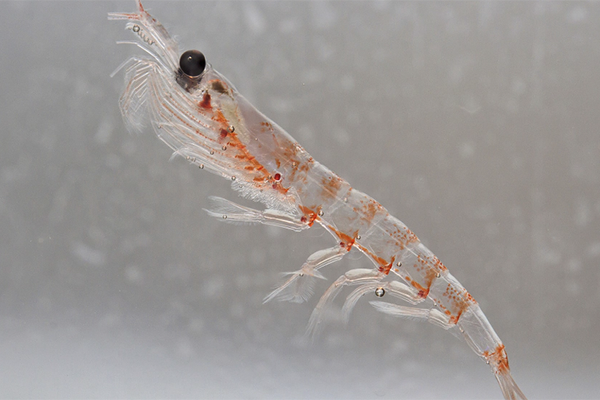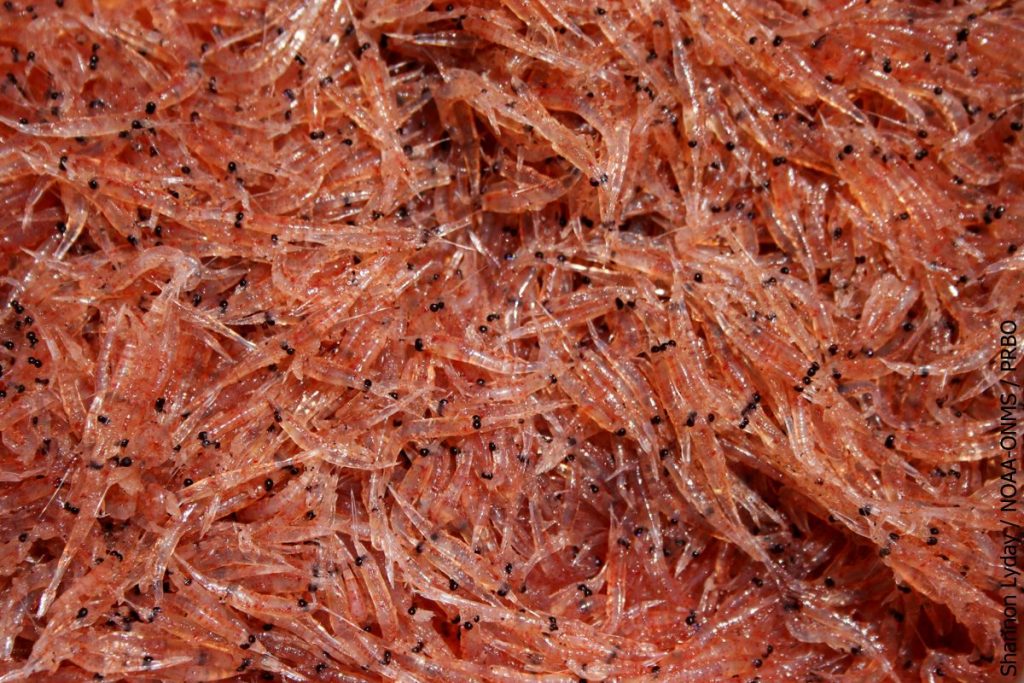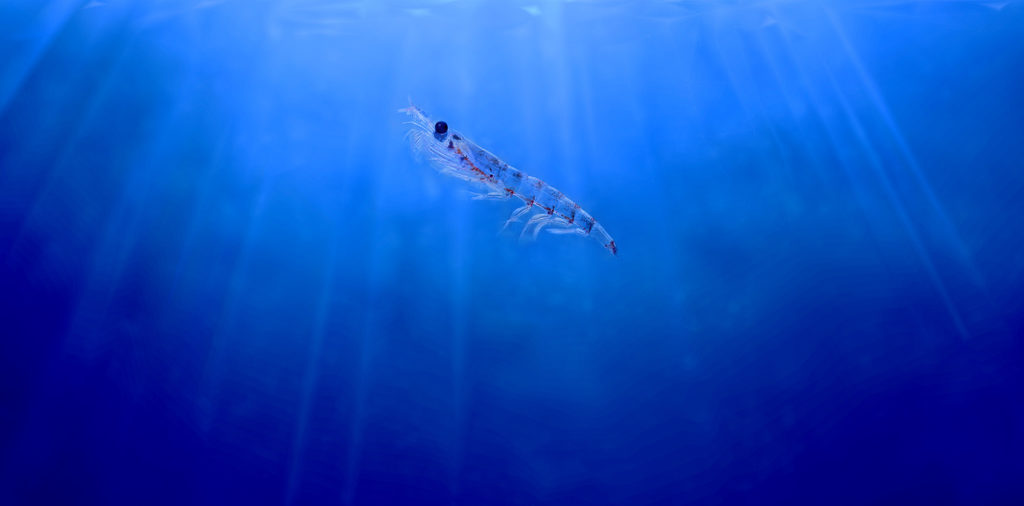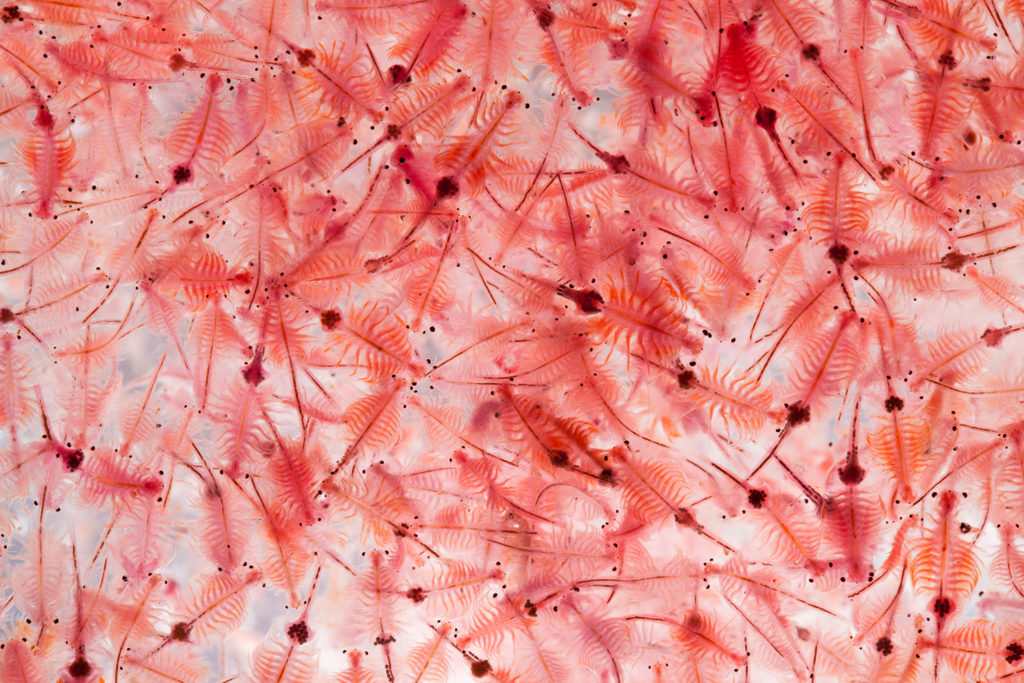Krill is a key species that many marine animals rely on

F3 – Future of Fish Feed – has launched another aquaculture feed contest, this time to spark innovation for krill replacements.
The F3 Krill Replacement Challenge will involve up to 10 invited feed companies to compete for a U.S. $100,000 prize. The contest aims to identify the krill replacement that results in the best growth, feed conversion and survival during a 12-week feeding trial on Atlantic salmon (Salmo salar). Registration is open until August 31, 2023.
“We are upping the stakes in our fourth challenge to the aquaculture industry to replace another critical marine animal ingredient in fish feed,” said Kevin Fitzsimmons, professor at the University of Arizona and chair of F3. “We invite innovators from the feed supplement, feed ingredient and synthetic biology sectors to join us in advancing more sustainable aquaculture practices that will improve food security globally.”
The fourth contest hosted by F3 was motivated by scientific research that has shown sharp declines in krill populations due to regional overfishing as well as climate change-related impacts such as higher ocean temperatures and increasing acidification.
Krill is used as an aquaculture feed ingredient for its nutritional benefits and is thought to increase feed palatability and fish growth. But F3 says a rapidly expanding industrial fishery coupled with climate-induced stressors presents considerable risks to the global krill supply. Krill is a key species at the base of the marine food chain that many marine animals – including whales, penguins, and commercially important wild fisheries like salmon, rockfish, squid and sardines – rely on.
The contest will be run as a comparative feeding trial in which each competitor’s feed additive, attractant or other feed-enhancing product free of marine-animal ingredients will be incorporated into a F3-designed, plant-based feed for Atlantic salmon. F3 judges will compare weight gain, feed conversion ratios and survival rates observed for each krill replacement product. A diet containing krill meal is also included in the trial as a control.
Follow the Advocate on Twitter @GSA_Advocate
Now that you've reached the end of the article ...
… please consider supporting GSA’s mission to advance responsible seafood practices through education, advocacy and third-party assurances. The Advocate aims to document the evolution of responsible seafood practices and share the expansive knowledge of our vast network of contributors.
By becoming a Global Seafood Alliance member, you’re ensuring that all of the pre-competitive work we do through member benefits, resources and events can continue. Individual membership costs just $50 a year.
Not a GSA member? Join us.
Author
Tagged With
Related Posts

Fisheries
A review of bycatch in the Antarctic krill trawl fishery
Understanding the significance of bycatch is critical to managing Antarctic krill, a keystone species and the largest fishery in the Southern Ocean.

Aquafeeds
Can a diet that includes Antarctic krill improve sea bream larvae survival?
A new study suggests that sea bream larvae fed on a diet including Antarctic krill show increased survival rates and enhanced growth.

Aquafeeds
Will krill fulfill its promise as an aquaculture feed ingredient?
Krill has been shown to augment aquafeeds but utilizing and protecting the resource demands specialized equipment and a patient, collaborative approach.

Aquafeeds
Is a ‘baby food’ bottleneck looming for aquaculture?
Global aquaculture, particularly farmed shrimp, depends on artemia for hatchery feeds. Supplies meet current needs, but growth will require alternatives.



